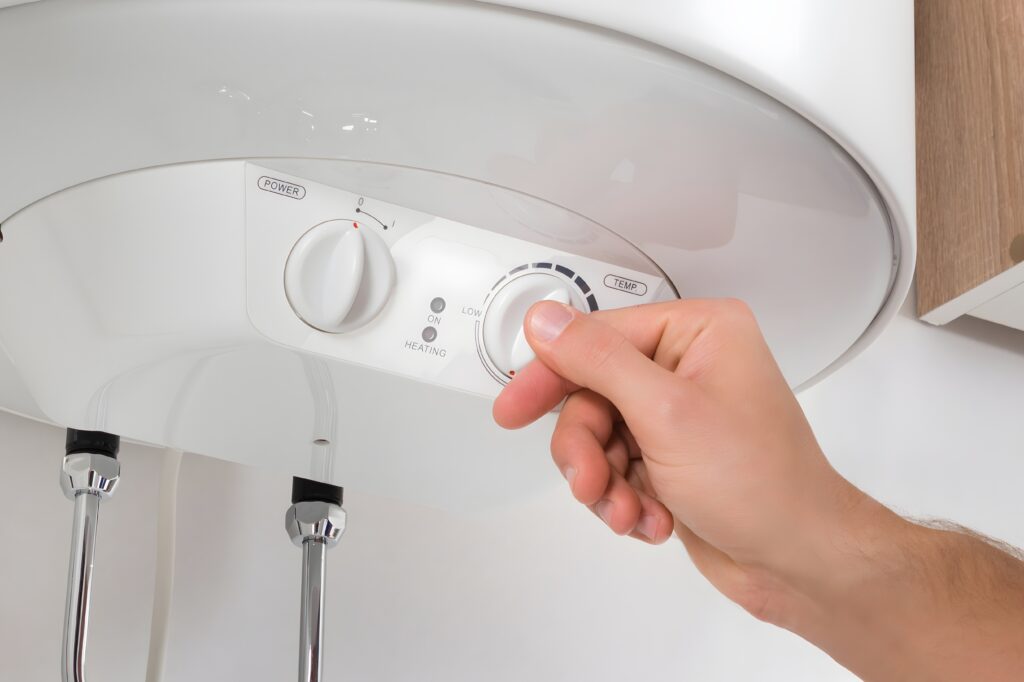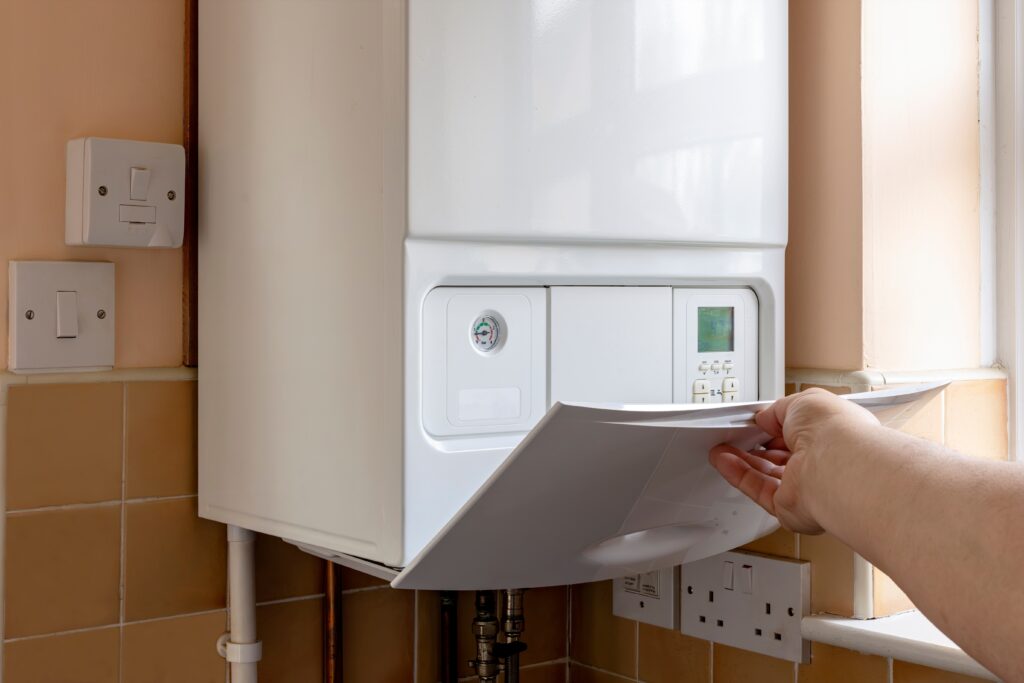If you’re planning a heating upgrade or building a new home, one of the biggest decisions you’ll face is how to heat your water and home. And if you’ve stumbled upon the debate of electric boiler vs gas boiler, you’re not alone. With rising energy costs, new government regulations, and growing awareness around sustainability, choosing the right system isn’t just about today, it’s about future-proofing your home.
In this guide, we’ll walk you through everything you need to know about both types of boilers. Whether you’re new to boilers entirely or simply weighing up your options, we’ll break it all down: how they work, what they cost to run, how you install them, and how each affects your wallet and the planet.
What Is an Electric Boiler?

An electric boiler is a heating system that uses electricity to heat water for your radiators, underfloor heating, or taps. It doesn’t burn fuel like a gas boiler. Instead, it uses a heating element, much like a kettle, to warm the water inside the system.
You can install electric boilers almost anywhere in the home because they are compact. They don’t require a flue (a pipe that vents waste gases outside), which makes electric boiler installation quicker and simpler. Also, no need for a gas supply exists, which is ideal for off-grid properties or homes aiming for a low-carbon future.
In the electric boiler UK market, you’ll usually come across electric combi boilers (which provide both heating and hot water on demand), or system boilers (which work with a hot water tank).
What Is a Gas Boiler?

Gas boilers are the most common heating system in the UK. They burn natural gas to heat water that circulates through your radiators or hot water cylinder. Like electric boilers, they come in combi and system formats, but they require a flue and connection to the gas grid.
A typical gas boiler installation includes pipework, flue installation, gas safety testing, and connection to the home’s existing radiators. Though highly reliable and cost-effective in the short term, gas boilers emit carbon dioxide (CO2) during operation. This raises concerns about long-term sustainability, especially with the UK government planning to phase out new gas boilers in new builds by 2035.
Energy Efficiency: How Do They Compare?
Electric Boiler Efficiency
Electric boilers are known for their near-perfect energy conversion. Virtually 100% of the electricity used converts into heat, meaning that almost no energy wastes. Because there’s no combustion process, there’s no loss through flue gases or venting.
For environmentally-conscious homeowners, this is an attractive option, particularly when paired with renewable energy like solar panels or wind-generated electricity. This makes electric boiler UK setups increasingly popular for sustainable homes.
Gas Boiler Efficiency
Modern gas boilers are far more efficient than older models, especially condensing boilers, which recover extra heat from exhaust gases. However, they still fall short of electric boilers. Combustion and venting lose heat, which reduces their overall efficiency.
That said, gas remains cheaper per kilowatt-hour than electricity. So, while electric boilers are more efficient, gas boilers can still be cheaper to run month-to-month.
Running Costs: What Will You Pay Over Time?
Electric Boiler vs Gas Boiler Running Costs
When considering electric boiler vs gas boiler running costs, it’s essential to look beyond just energy bills. Although electric boilers are more efficient, electricity in the UK is typically 3–4 times more expensive per kWh than gas.
For example, according to GreenMatch UK, the average UK household might pay around £1,700 per year in electricity to run a standard electric boiler, compared to approximately £890 per year for a gas boiler of similar size and output.
However, electric boilers require less maintenance, fewer safety checks, and have fewer moving parts, which can reduce your annual service costs. They also have a longer expected lifespan, often up to 20–25 years.
Installation: What Does It Involve?
Electric Boiler Installation
Electric boiler installation is typically simpler and quicker than a gas boiler. Because gas pipework, flues, or ventilation systems aren’t necessary, the team can often complete the installation in a single day. Less invasive and ideal for homes with limited space.
This simplicity also tends to make installation slightly cheaper. However, in homes with high heating demand, you may need a three-phase electrical supply to accommodate the power draw. An experienced residential electrical installer like DRW can assess your setup and advise accordingly.
Gas Boiler Installation
Gas boiler installation involves more steps: gas safety checks, fitting a flue, possibly upgrading existing pipework, and ensuring the system meets all regulatory requirements. It usually takes longer and may require approval from a Gas Safe registered engineer.
While this process is familiar to most UK installers, it can also involve higher labour costs and disruption to the home’s interior, especially if old pipework needs replacing.
Safety and Maintenance
Electric Boiler Safety
Electric boilers are generally safer than their gas counterparts. No combustion, no risk of carbon monoxide leaks, and fewer mechanical parts that can fail exist. That’s why many landlords are switching to electric systems in rental properties.
In terms of maintenance, electric boilers require little attention beyond standard checks. You do not need an annual gas safety certificate, and fewer components to wear down make breakdowns less common.
Gas Boiler Safety
Gas boilers require regular maintenance and must legally be inspected annually by a Gas Safe registered engineer. While rare, risks include gas leaks and carbon monoxide exposure, which can be life-threatening if not addressed promptly.
Despite these risks, gas boilers are a well-established technology with strong regulatory oversight. Most UK homes have existing infrastructure in place, making it a familiar choice for many.
Which Is Right for Your Home?
Choosing between an electric boiler vs gas boiler depends on several factors: your property type, heating demand, budget, access to the gas grid, and long-term plans.
For smaller homes, new builds, or those looking to cut emissions, an electric boiler might be the perfect fit. Especially when installed by a trusted residential electrical specialist, the process is smooth and future-focused.
For larger homes with high hot water demands, especially those already connected to the gas grid, a gas boiler might still offer the best value, at least in the short term.
Speak to DRW: Your Local Heating Experts
Still unsure which system suits you best? DRW offers expert advice on both electric boiler installation and broader residential electrical upgrades. We will guide you through your options, help you maximize available grants or energy tariffs, and ensure you heat your home safely, efficiently, and affordably.
Get in touch today to book your free consultation and start your journey to smarter home heating.


